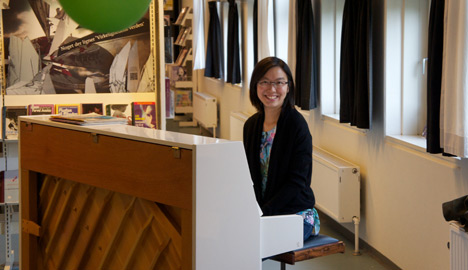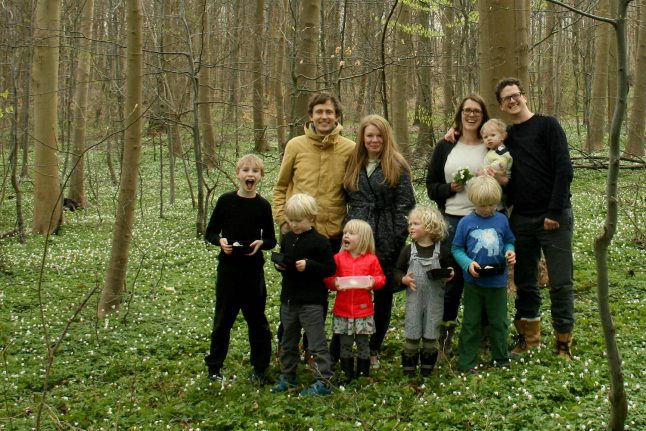Danes are infamously good English speakers. From school-age children to beggars on the streets and nearly everyone in between, most Danes have little problem holding a conversation in English. But with China’s emergence as a superpower, English may no longer be enough.
Hong Kong native Sau Wai Ng has spent the last three years helping Danes prepare for a potentially not too distant future in which Mandarin Chinese – the most widely-spoken language in the world – may well be the lingua franca of the business world.
Ng, 30, has taught Mandarin Chinese to Danish adults and children for three years. Until recently, she taught children aged 6-12 at a private school in the southern Copenhagen suburb of Køge. She now gives private Chinese lessons to adults.
How are the Danes’ Chinese skills?
The Danish school children learned very quickly and were happy to speak Chinese often. Teaching Danish adults was very inspiring because they asked questions on another level. They were interested in historical, cultural and political aspects of China on top of the language. I had some deep and fruitful discussions with my adult students. A real cultural exchange, I would say.
So, what’s a harder language to learn: Danish or Mandarin Chinese?
Given a short period of time, I would think learning Danish as a foreigner is harder. The Danish pronunciation is hard to catch from the beginning. But once you get used to it, it gets much easier, especially if you speak English too. It is relatively easy to pronounce Chinese words from the beginning, but in the long run, you'd need to expand your vocabulary and that may be difficult.
How did you end up in Denmark?
I first came to Denmark for the first time as an exchange student at Aalborg University in 2006. It was great! I really thought Denmark was beautiful and the people were very nice. I went back to Hong Kong to finish my bachelor’s and then returned to Denmark in 2008 to get my Master’s in Development and International Relations from Aalborg University. I really liked Aalborg, it was hyggeligt. In 2010, I moved to Copenhagen to take a job at Copenhagen Business School as an international academic coordinator.
What should job-seekers in Denmark be aware of?
A network is one of the most important parts of finding a good job in Denmark. You have to be very outgoing and try to meet as many different people as possible, including other internationals and expats. Tell others what you can do and what you are looking for in a job. It is a good way of advertising yourself. It also helps to take part in other activities, such as volunteer work and meeting with as many different groups as possible.
What about the language – is speaking Danish a must?
I think learning to speak Danish is one of the absolutely most important things in starting a career here. The Danes are very good at speaking English and very willing to do so, but if you really want to get close to the Danes and understand their culture, then I think it is necessary to speak Danish. Then you can really feel like you are a part of them.
What is the best thing about working in Denmark?
There is a very healthy work-life balance here that gives you plenty of time for to develop as an individual. There is also a very high level of trust in the Danish society in general. People trust each other very much from the very start.
What do you do with all of that extra free time?
Well, one thing is that I have recently started offering private piano lessons for adults. I play at the Ballerup Library, every Wednesday from 3-4pm. All are welcome to join! I wanted to share music with others and it turns out that people really like it. I also started playing chess a year ago and I'm very interested in getting to know the Danish chess community.
What has been the most challenging thing about living in Denmark?
The most difficult thing is that you really have to master the Danish language. That’s not necessarily a bad thing, but you really have to work on the language a lot in order to use the Danish on a high level.
Do you intend to stay in Denmark?
I really like the lifestyle in Denmark, but of course, working and seeing other cities is very exciting so I guess you never know!



 Please whitelist us to continue reading.
Please whitelist us to continue reading.
Member comments